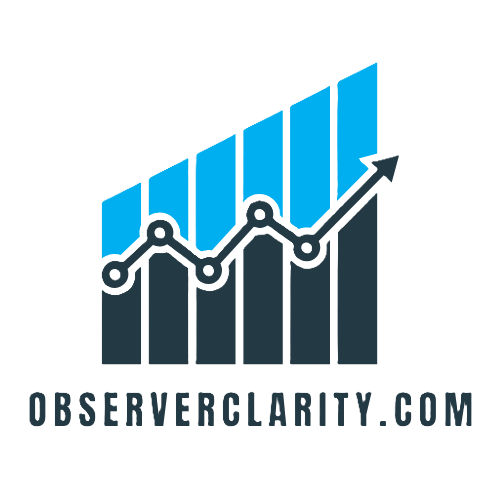Personal development goals can feel like trying to find a unicorn in a haystack—elusive and a bit mythical. But fear not! Setting these goals doesn’t have to be as daunting as it sounds. In fact, with the right examples, it can be as enjoyable as binge-watching your favorite series while munching on popcorn.
Whether it’s leveling up your career, improving your relationships, or just becoming the best version of yourself, personal development goals are the roadmap to success. They give direction and purpose to life’s chaotic journey. So buckle up and get ready to explore some practical and inspiring examples that’ll not only motivate but also make you chuckle a bit along the way. After all, who said self-improvement can’t come with a side of laughter?
Personal Development Goals
Personal development goals serve as a roadmap for growth in various life areas. They’re objectives individuals set to improve their skills, self-awareness, and overall quality of life. These goals can affect career advancement, relationship strengthening, and personal fulfillment.
Defining these goals allows individuals to recognize their aspirations. When one identifies specific areas needing attention, they create a clear path forward. For instance, focusing on communication skills can enhance professional interactions while nurturing personal relationships. Setting measurable objectives helps track progress and celebrate achievements, reinforcing motivation.
Goals often fall into several categories. Professional development goals, for example, may include obtaining a certification or improving time management abilities. Personal growth goals can encompass habits like reading more or engaging in mindfulness practices. Relationship-oriented goals might focus on enhancing listening skills or expanding one’s social network.
Establishing priorities aids in maintaining focus. It’s useful to categorize goals into short-term and long-term aspirations. Long-term goals provide direction, while short-term goals yield quick wins, boosting confidence and momentum.
Achieving personal development goals necessitates commitment and adaptability. Progress may involve setbacks, but a positive mindset remains crucial. Embracing the journey, including its challenges, fosters resilience and personal strength. Therefore, setting personal development goals becomes an empowering experience, aiding individuals in striving to become their best selves.
Importance Of Personal Development Goals

Personal development goals play a crucial role in defining an individual’s journey toward improvement. These goals serve as essential benchmarks for measuring progress in various aspects of life.
Benefits Of Setting Goals
Setting goals promotes focus and provides clarity. They allow individuals to identify what truly matters, enhancing motivation daily. Achieving small milestones fosters a sense of accomplishment, which boosts confidence. Tracking progress becomes easier, supporting continuous improvement in skills and knowledge. Attaining goals facilitates better time management by establishing priorities. Personal development goals help cultivate stronger discipline, encouraging individuals to remain committed over time.
How They Enhance Personal Growth
Personal development goals significantly enhance self-awareness. By evaluating strengths and weaknesses, individuals can work on areas requiring improvement. These goals foster resilience, teaching them to navigate setbacks and adapt strategies. Building meaningful connections arises from communication-enhancing goals, enriching personal relationships. Exploring new interests broadens perspectives, encouraging lifelong learning. Overall, personal development goals create pathways for growth that lead to increased fulfillment in both personal and professional realms.
Categories Of Personal Development Goals
Personal development goals can be organized into distinct categories, each targeting specific areas of life. Understanding these categories helps individuals focus on their aspirations effectively.
Professional Goals
Professional goals include objectives related to career advancement and skill enhancement. They can involve acquiring new qualifications or improving existing ones. Examples range from attending workshops to achieving promotions. People often set specific targets, like increasing sales by 20% within a year. Consistently networking within one’s industry contributes to career growth. Pursuing mentorship opportunities also strengthens professional connections and skill sets.
Emotional Goals
Emotional goals focus on improving mental wellbeing and emotional awareness. Individuals might aim to practice gratitude daily to foster a positive mindset. Cultivating mindfulness through meditation enhances stress management. Another important emotional goal is developing emotional resilience, which can be achieved by learning coping strategies. Additionally, people can track their mood changes to better understand emotions over time. Aiming to clarify personal values further strengthens emotional stability.
Physical Goals
Physical goals target health and wellness improvement. They often include objectives like exercising regularly or adopting a balanced diet. Individuals may commit to walking 10,000 steps daily or participating in a fitness class three times a week. Tracking sleep patterns contributes to overall health. Setting specific weight loss objectives can also be motivating, such as losing 10 pounds in three months. Engaging in outdoor activities promotes both physical fitness and mental clarity.
Social Goals
Social goals enhance interpersonal skills and relationships. Individuals might aim to expand their social circles by attending community events. Developing active listening techniques improves communication with others. Volunteering in local organizations fosters new connections while supporting the community. Strengthening existing friendships is also vital; scheduling regular meet-ups can help. Exploring new hobbies allows for shared experiences, which further enriches social interactions.
Personal Development Goals Examples
Setting personal development goals encourages growth and improvement across various life areas. Here are four practical examples to inspire individuals.
Example 1: Improving Leadership Skills
Improving leadership skills enhances an individual’s ability to lead effectively. Taking on volunteer roles in community organizations provides hands-on experience. Attending leadership workshops fosters essential skills in communication and conflict resolution. Setting clear monthly goals can track progress, boost confidence, and refine an individual’s style. Mentorship opportunities also offer valuable insights from experienced leaders.
Example 2: Enhancing Time Management
Enhancing time management skills allows individuals to maximize productivity. Implementing techniques like the Pomodoro Technique can improve focus. Creating daily to-do lists prioritizes tasks and helps individuals stay organized. Setting specific deadlines for projects cultivates a sense of urgency. Utilizing apps for time tracking ensures individuals remain accountable for their schedules.
Example 3: Building Healthy Habits
Building healthy habits promotes overall well-being and increases energy levels. Establishing a consistent exercise routine—such as 30 minutes of physical activity daily—can lead to significant health benefits. Eating balanced meals filled with fruits and vegetables contributes to better nutrition. Setting aside time for mindfulness practices like meditation reduces stress and improves mental clarity. Tracking progress through a journal aids in maintaining motivation.
Example 4: Expanding Knowledge
Expanding knowledge facilitates personal and professional growth. Pursuing online courses in areas of interest allows individuals to learn at their own pace. Reading books or articles about industry trends broadens understanding and perspectives. Joining discussion groups fosters deeper engagement with new concepts. Attending webinars provides access to expert insights and networking opportunities.
Tips For Setting Effective Personal Development Goals
Identify clear objectives to create measurable personal development goals. Setting specific targets enables individuals to evaluate progress effectively. Break long-term goals into smaller, actionable steps. Smaller goals promote motivation and reduce overwhelm.
Evaluate resources before establishing goals. Understanding available time and support can shape realistic objectives. Prioritize personal goals by focusing on aspects that need immediate attention. Shifting attention to urgent needs ensures a balanced growth approach.
Align goals with personal values and interests. When individuals set goals that resonate with them, motivation often increases. Consider using the SMART criteria—Specific, Measurable, Achievable, Relevant, Time-bound. This framework clarifies each goal’s purpose and underscores commitment.
Track progress consistently to maintain focus. Regularly reviewing achievements reinforces motivation and highlights areas for improvement. Seek feedback from trusted colleagues or friends. Their insights can provide valuable perspectives and encourage accountability.
Embrace flexibility in the goal-setting process. Adjusting goals based on evolving circumstances fosters resilience. Celebrate small successes along the way to promote a sense of accomplishment. Recognizing progress, no matter how minor, encourages continued effort.
Incorporate reflection into the routine. Regular self-assessment allows for the identification of strengths and weaknesses. Use these insights to refine future goals and strategies for personal development.
Engage with supportive communities that share similar interests. Shared experiences can lead to inspiration and practical advice. Networking with others also enhances social skills, allowing individuals to forge valuable relationships on their journey toward growth.
Conclusion
Personal development goals are essential for anyone looking to enhance their life and achieve fulfillment. By setting clear and actionable objectives individuals can navigate their journey with confidence and purpose. These goals not only promote self-improvement but also foster stronger relationships and greater career satisfaction.
Embracing the process of setting and achieving personal development goals can lead to significant growth and transformation. With the right mindset and a commitment to progress individuals can unlock their potential and create a roadmap for success. As they embark on this journey they’ll discover that the pursuit of personal development is both rewarding and empowering.




